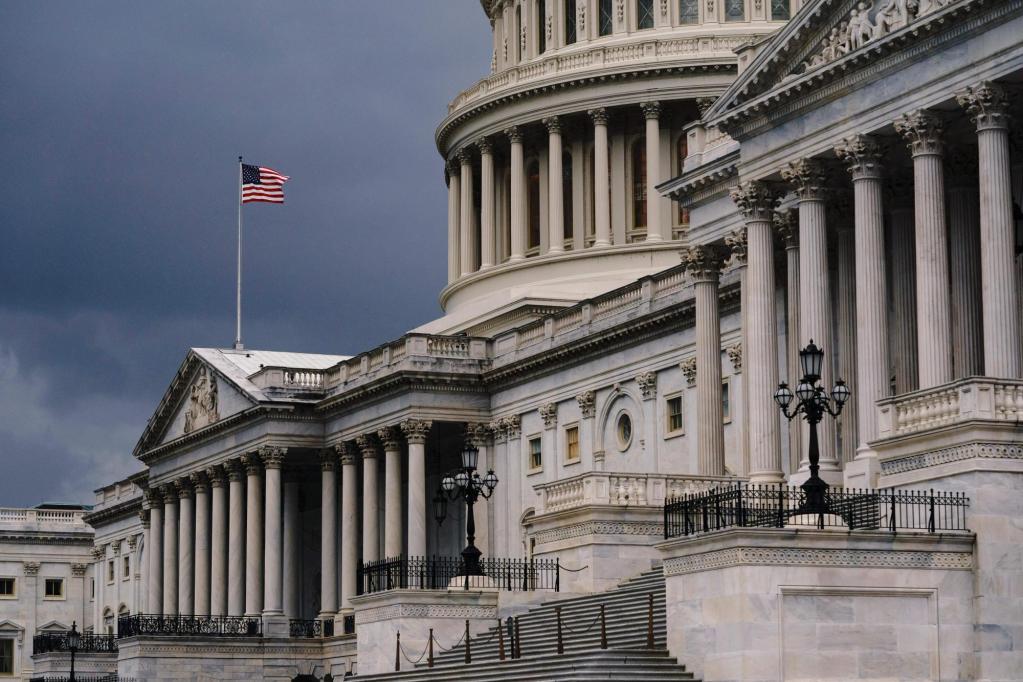
The recent push by Republican lawmakers to advance a contentious tax bill has ignited a fierce debate across the United States. The bill, criticized for its potential to strip health care from vulnerable populations and threaten rural hospitals, has been met with widespread opposition. Critics argue that it prioritizes tax breaks for the wealthy while increasing the national debt, raising questions about its economic and moral implications.
According to reports, the bill could decimate clean energy initiatives and exacerbate climate change, posing significant economic and health risks. The legislation’s potential to increase funding for agencies like ICE and Homeland Security has also drawn ire, with opponents labeling it as “cruel” and “brutal.”
Economic and Environmental Concerns
The proposed tax bill has been described as lacking economic, political, and environmental rationale. Critics argue it contradicts the constitutional mandate to “promote the general welfare.” Barbara Fukumoto from Sunnyvale expressed her dismay, emphasizing that the bill would harm public health, threaten clean-energy jobs, and further burden future generations with debt.
Environmental advocates warn that the bill could accelerate climate chaos, a concern echoed by many experts. The potential rollback of clean energy projects could cede technological advancements to global competitors, hindering the U.S.’s ability to lead in this critical sector.
Historical and Moral Perspectives
Reflecting on the broader implications of the bill, some citizens have drawn parallels to historical struggles for freedom and equality. At a recent D-Day memorial in France, 101-year-old veteran Harold Terens highlighted the enduring importance of freedom, a sentiment echoed by Pete Campbell from San Jose, who hopes for global freedom akin to that celebrated on Independence Day.
The United Nations’ Declaration of Human Rights underscores the universal right to freedom and equality, a principle that many feel is threatened by the current political climate. The tax bill, in their view, represents a step away from these foundational ideals.
Judicial and Administrative Critiques
Beyond economic and environmental concerns, the bill has sparked discussions about judicial and administrative responsibilities. In Santa Clara County, a significant number of vehicular manslaughter cases have not been reported to the DMV, allowing offenders to retain their licenses. Charles Shoemaker from Sunnyvale questions the courts’ effectiveness in ensuring public safety.
Meanwhile, Eugene Ely from San Jose criticizes the current administration’s focus on self-interest rather than public welfare. He urges citizens to consider their legacy and the long-term impact of their actions, warning against the distractions of “alternative facts.”
Political Ramifications and Future Outlook
The militarization of Los Angeles during a recent peaceful demonstration has raised alarms about potential overreach by the federal government. Ray Jones from San Jose speculates that such actions might be a prelude to using military force to influence future elections, a scenario that would have profound implications for democracy.
In the realm of international relations, the Abraham Accords have shifted the Middle East’s geopolitical landscape, challenging longstanding assumptions about peace in the region. Brian Suckow from Palo Alto notes that the success of these accords contradicts traditional views linking Israeli-Arab peace to the Palestinian conflict.
As the debate over the tax bill continues, its potential economic, environmental, and moral impacts remain at the forefront of public discourse. The coming weeks will be critical in determining the bill’s fate and its broader implications for the nation.






